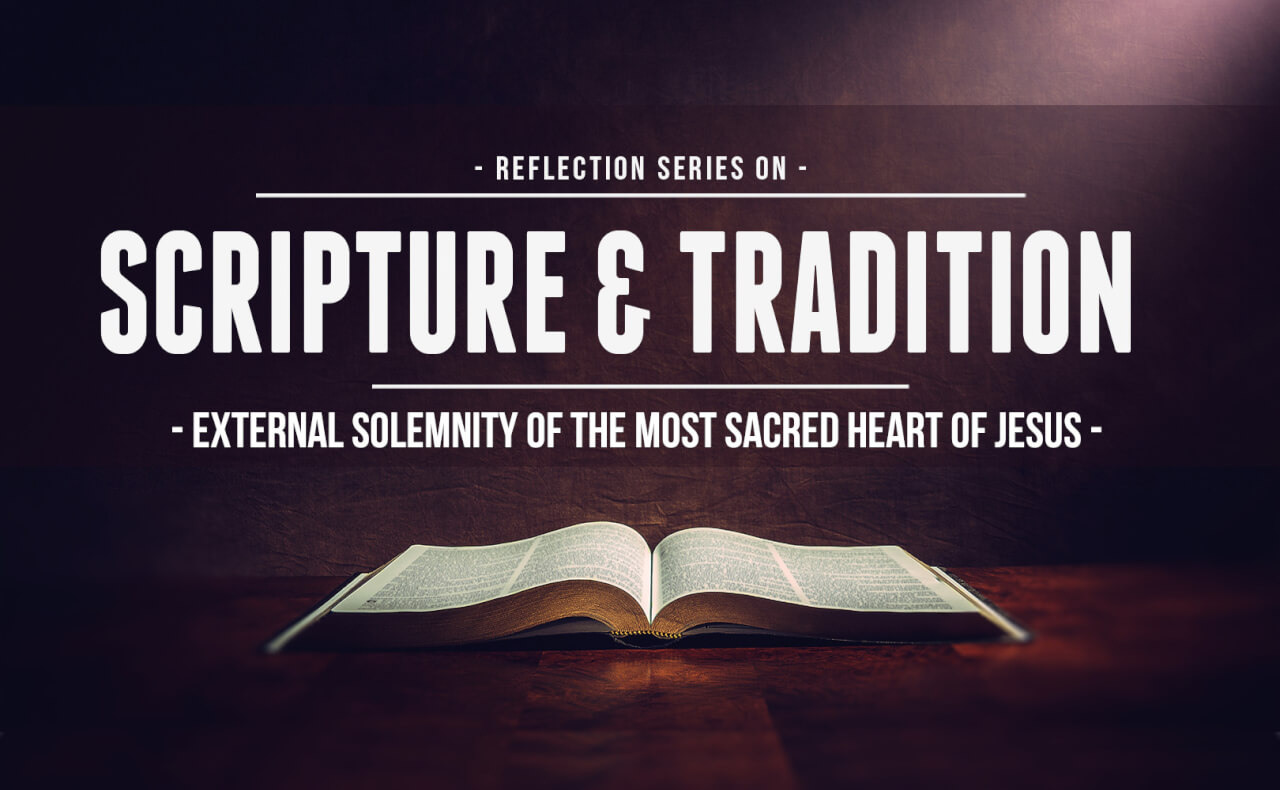(Note: In some areas, this Sunday is celebrated as the Third Sunday after Pentecost. See last week’s reflection for an explanation of “External Solemnities.”)
Epistle: Ephesians 3:8-19
Gospel: John 19:31-37
O God, who in the Heart of Thy Son, wounded by our sins, dost mercifully vouchsafe to bestow upon us the boundless treasures of Thy love: grant, we beseech Thee, that we who now render Him the service of our devotion and piety, may also fulfill our duty of worthy satisfaction.
– From the Collect for the Most Sacred Heart of Jesus
Today’s Gospel presents a practical—if gruesome—problem for the Jewish leaders on Good Friday. They did not want the body of Jesus—and the two thieves crucified with him—hanging on their crosses during the Passover Sabbath day. They needed all three condemned criminals to hurry up and die so that they could be brought down before nightfall. So they asked Pilate if he could expedite the execution. The Roman governor consented, and so Roman soldiers broke the legs of the two thieves to bring about their deaths. However, when they came to Jesus, they realized that He was unconscious and likely already dead (due to the great suffering His body endured before His crucifixion).
They needed to be sure, though. So a soldier took his spear and thrust it into the side of Jesus, and out flowed blood and water. The quantity of water indicated that Jesus was dead, for they knew that fluid accumulated around the heart of one who died of asphyxiation after hours on a cross. For the Jewish leaders, their problem was solved, and they went about celebrating the Passover.
John the Evangelist doesn’t relate this story in his Gospel simply to record how the Jewish leaders solved a delicate situation. He—and countless Christians after him—see great symbolism and meaning in the blood and water that flowed from Christ’s pierced side.
The Church Fathers linked the side of Jesus, the New Adam, with the side of the Old Adam. God formed Adam’s bride, Eve, out of his side, and the bride of Christ, the Church, was formed out of the side of Christ. Ephrem the Syrian writes, “‘There came forth blood and water,’ which is his Church, and it is built on him, just as [in the case of] Adam, whose wife was taken from his side. Adam’s rib is his wife, and the blood of our Lord is his Church. From Adam’s rib there was death, but from our Lord’s rib, life” (Commentary on Tatian’s Diatessaron 20.11).
More specifically, many Church Fathers, and others after them, see in the blood and water the birth of the Sacraments of the Church. St. Augustine notes, “The Evangelist has expressed himself cautiously. He does not say ‘struck’ or ‘wounded’ but ‘opened his side.’ Here was opened the gate of life from which the Sacraments of the Church flowed without which we cannot enter into that life that is true life” (Tractates on the Gospel of John 120.2). St. John Chrysostom links the blood and water with the Sacraments of Baptism and the Eucharist: “Not without purpose or by chance did those fountains spring forth. Rather, it is because the Church consists of these two together. And those who have been initiated know this, being regenerated indeed by water and nourished by the blood and the flesh” (Homilies on the Gospel of John 85.3).
So we see that the Church and her Sacraments flow from the heart of Jesus. And this is as it should be, for the Sacred Heart of Jesus is the source of His passionate love for humanity, and the Church and her Sacraments are nothing less than the physical, earthly fruit of His great love. St. Paul writes of this all-consuming love in today’s epistle, and urges us to contemplate in our own hearts that love which pours from the Sacred Heart: “That…you may be able to comprehend, with all the saints, what is the breadth and length and height and depth, To know also the charity of Christ, which surpasseth all knowledge: that you may be filled unto all the fulness of God” (Ephesians 3:17-19).
There is no greater love than the self-giving, infinite love of God. In Our Lord’s Sacred Heart, pierced on the cross, we witness the breadth and length and height and depth of that love poured out for our salvation.


